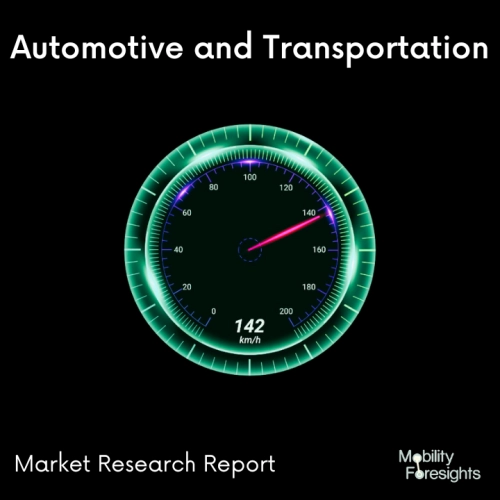
- Get in Touch with Us

Last Updated: Apr 25, 2025 | Study Period: 2022-2030
In terms of rapidly scaling the EV infrastructure, the global adoption of the Combined Charging System is bringing people closer together. the principal parties involved in the communication.
The vehicle to be charged is represented by the left block, which communicates with the charging station. A Supply Equipment Communication Controller (SECC) connected to the Power Electronics grid makes up the charging station.
The EV charge controller is made up of the SECC and Power Electronics all together. Power Line Communication (PLC) serves as the foundation for the connection to the vehicle. Be that as it may, before the PLC can be laid out between the vehicle and charging station, it is important to prompt the vehicle and charging station to one another.

The Global EV Charging Interface Control Unit market accounted for $XX Billion in 2021 and is anticipated to reach $XX Billion by 2030, registering a CAGR of XX% from 2022 to 2030.
EV charging interface control unit SE is a vehicle and electric vehicle supply equipment (EVSE) communication platform. It enables the charge controller to communicate. It supports CP (control pilot) and PP (proximity pilot) signalling, as well as Green PHY communication, for EVSE-to-EV communication.
You can begin software development for your own charging station using given products.
The proven EV charge SE hardware platform has been on the market for some time and is widely used in various charging stations and buses.
Other possible applications of the EV charging interference control unit include charge controlling in electric vehicles (EV), charge controlling in electric vehicles (EV), and simulators for EV or EVSE tests. PWM charging is supported by the EV charging stack
The Electric Vehicle (EV) Charging Optimizer solution, which enables EV charging assets to cooperate with the grid, was introduced by Iron. The cloud-based, global solution integrates grid management and EV charging management systems to provide utilities and EV charging operators with comprehensive EV charging and energy management. It is charger and vehicle agnostic.
To address potential locational capacity constraints and the requirement to charge operators to optimize their energy consumption, Iron will initially concentrate on the fleet segment for the solution.
1. How many EV Charging Interface Control Units are manufactured per annum globally? Who are the sub-component suppliers in different regions?
2. Cost breakup of a Global EV Charging Interface Control Unit and key vendor selection criteria
3. Where is the EV Charging Interface Control Unit manufactured? What is the average margin per unit?
4. Market share of Global EV Charging Interface Control Unit market manufacturers and their upcoming products
5. Cost advantage for OEMs who manufacture Global EV Charging Interface Control Unit in-house
6. 5 key predictions for next 5 years in Global EV Charging Interface Control Unit market
7. Average B-2-B EV Charging Interface Control Unit market price in all segments
8. Latest trends in EV Charging Interface Control Unit market, by every market segment
9. The market size (both volume and value) of the EV Charging Interface Control Unit market in 2022-2030 and every year in between?
10. Production breakup of EV Charging Interface Control Unit market, by suppliers and their OEM relationship
| Sl no | Topic |
| 1 | Market Segmentation |
| 2 | Scope of the report |
| 3 | Abbreviations |
| 4 | Research Methodology |
| 5 | Executive Summary |
| 6 | Introduction |
| 7 | Insights from Industry stakeholders |
| 8 | Cost breakdown of Product by sub-components and average profit margin |
| 9 | Disruptive innovation in the Industry |
| 10 | Technology trends in the Industry |
| 11 | Consumer trends in the industry |
| 12 | Recent Production Milestones |
| 13 | Component Manufacturing in US, EU and China |
| 14 | COVID-19 impact on overall market |
| 15 | COVID-19 impact on Production of components |
| 16 | COVID-19 impact on Point of sale |
| 17 | Market Segmentation, Dynamics and Forecast by Geography, 2022-2030 |
| 18 | Market Segmentation, Dynamics and Forecast by Product Type, 2022-2030 |
| 19 | Market Segmentation, Dynamics and Forecast by Application, 2022-2030 |
| 20 | Market Segmentation, Dynamics and Forecast by End use, 2022-2030 |
| 21 | Product installation rate by OEM, 2022 |
| 22 | Incline/Decline in Average B-2-B selling price in past 5 years |
| 23 | Competition from substitute products |
| 24 | Gross margin and average profitability of suppliers |
| 25 | New product development in past 12 months |
| 26 | M&A in past 12 months |
| 27 | Growth strategy of leading players |
| 28 | Market share of vendors, 2022 |
| 29 | Company Profiles |
| 30 | Unmet needs and opportunity for new suppliers |
| 31 | Conclusion |
| 32 | Appendix |